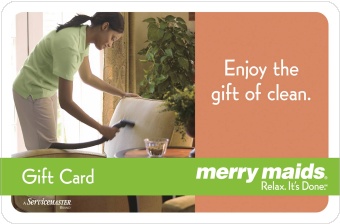Unexpected medical emergencies are jarring and traumatic. The sudden physical, psychological and financial strain associated with a crisis creates a fearsome perfect storm.
The truth of medicine in the 21st Century is that emergencies can (and do) unfold in slow motion. As populations age and health care costs sky rocket, chronic conditions go undertreated. They then present themselves in emergency rooms nationally.
Effective and sustained familial and community assistance can go a long way to providing specific means of care to those who need it. Difficult conversations in the present do serve us in the future.
For someone in need, consider contributions to health savings accounts. These are tax preferential accounts that allow patients to access necessary follow-up for care not covered by insurance.
Many people who semi-slide into emergent situations are too proud to ask for assistance. Meanwhile, a caring community that surrounds them (sometimes extended family from a distance) is unaware of the extent of the need.
Walk through an emergency room on any given day and observe the cost.
Geriatric patients suffer injuries while at home as a result of a deficit of in-home care or a lack of durable medical equipment (for example, walkers) that might have prevented an accident in the first place.

Post-partum women come to ERs with mastitis for lack of a breast pump.
People who are unable to afford dental care seek emergency assistance for teeth and jaw-related pain.
Complications from diabetes as a result of obesity and poor diet are common.
Patients are diagnosed with advanced cancer. They present with cardiac emergencies.
Give InKind spoke with Andrew Wilson, M.D., whose specialty is emergency medicine.
Dr. Wilson indicated that the majority of the patients he sees would benefit from sustained community assistance. In particular, he expressed concern about a lack of sustained and coordinated care for geriatric populations.
As baby boomers enter their advanced years, communication as to specific needs will become increasingly pertinent.
The fall out from the Great Recession, coupled with hyper-inflated healthcare costs (even the insured have high deductibles) – means that people of all ages are forced to make choices. They tend to do less primary care than they might.
As accidents take place, there are many things a community can do to assist. This applies to geriatric emergencies, as well as to accidents that affect general populations.
Begin at the understanding that some emergencies occur in apparently grey areas. An elderly person slipping in the shower and bruising a hip is, in fact, devastating for someone living alone. His ability to care for himself is severely compromised. He may be too proud to tell others how he can no longer get to the toilet. Or that he is having difficulty feeding himself.
Contrast this with a car crash wherein a young family sustains serious injuries.
Although different in scope and in action, both of these situations are true emergencies. Each of these circumstances invites community-wide support and coordinated action.
For anyone who has been discharged from an ER, it is advisable for well-placed members of his or her support team to ask what is necessary to support healing.
This will depend upon the demographic.
For a geriatric patient, consider hiring an occupational therapist to do a home visit. The therapist will evaluate the home and suggest durable medical equipment items to purchase. Things such as 4-point canes, walkers, and hearing aid batteries may or may not be covered by insurance.
Extended family and friends can do a great deal to be sure that a geriatric patient has items to support continued independent living.
Ask specific questions about diet and make inquiries from companies who deliver meals for special diets – Blue Apron supplies diabetic meals, for example.
Touch base about dental care and consider loading a gift card to a chain dental provider such as Aspen Dental Care.
For someone who is aging but who is still living independently, a similar consideration of durable medical equipment is helpful.
Helpful Products
Give InKind does not provide medical advice, diagnosis, or treatment. We have an affiliate relationship with many of the advertisers on our site, and may receive a commission from any products purchased from links in this article. See Terms & Conditions.




